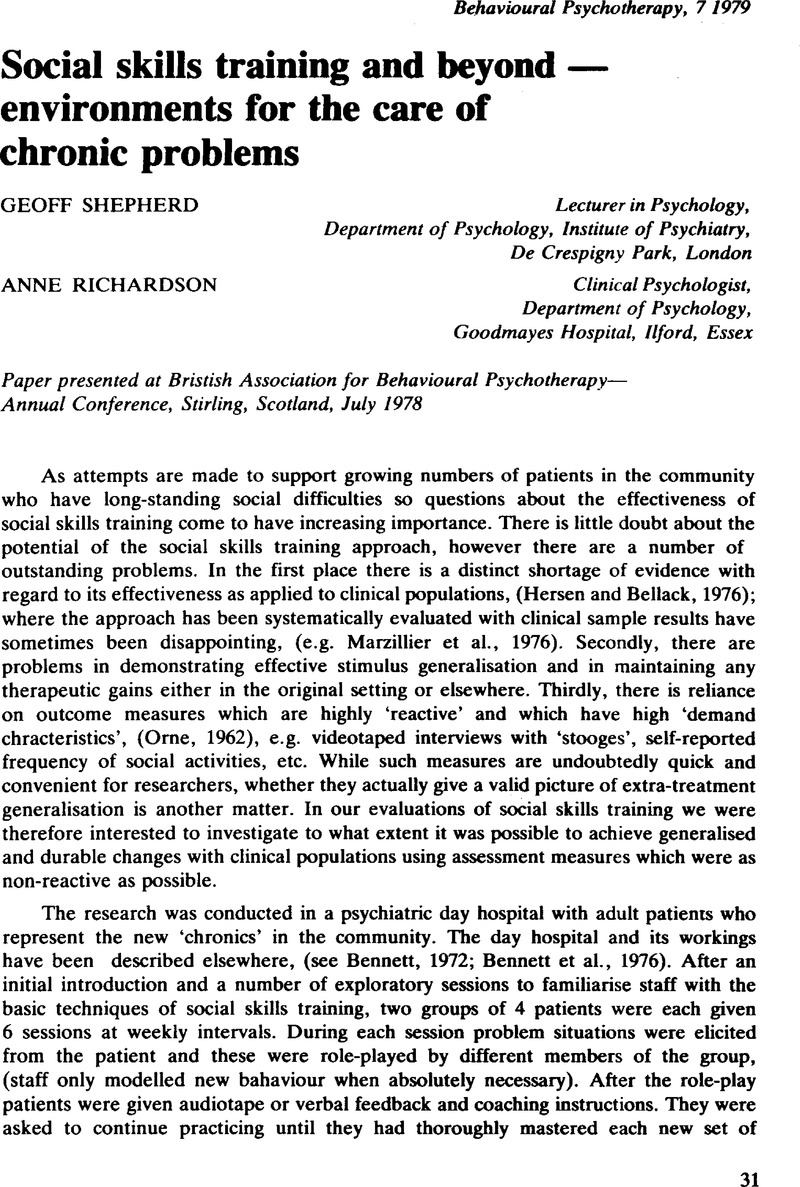Crossref Citations
This article has been cited by the following publications. This list is generated based on data provided by Crossref.
HENDERSON, MONIKA
and
HOLLIN, CLIVE
1983.
A Critical Review of Social Skills Training with Young Offenders.
Criminal Justice and Behavior,
Vol. 10,
Issue. 3,
p.
316.
Birchwood, Max
and
Shepherd, Geoff
1992.
Controversies and Growing Points in Cognitive-Behavioural interventions for People with Schizophrenia.
Behavioural and Cognitive Psychotherapy,
Vol. 20,
Issue. 4,
p.
305.






Comments
No Comments have been published for this article.